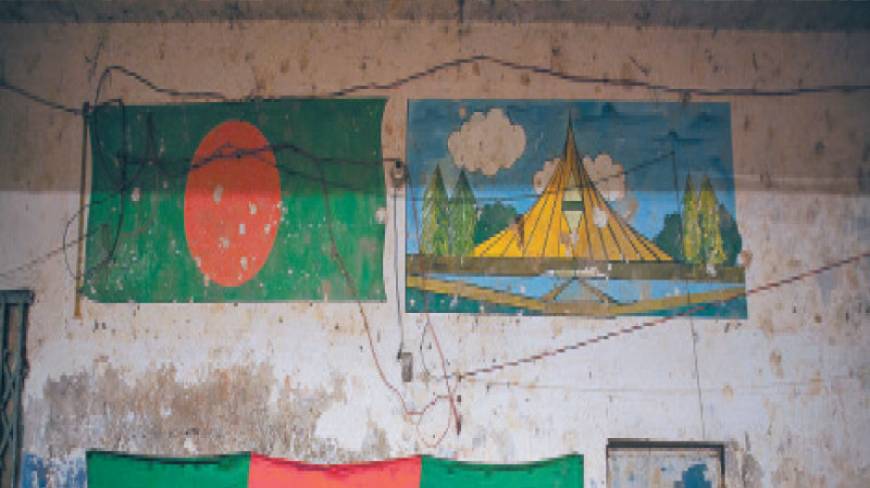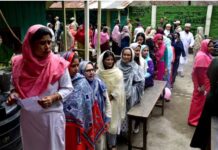We are celebrating the 45th Independence Day since the one in 1971, when the nation plunged into a war that would, in nine months, trigger the cessation of East Bengal from the faux dream of Pakistan, and Bangladesh would be born. Pakistan was a dead horse since the days of upheaval in 1969, when its military rulers defied the actual condition that there were two economies and not one in the united Pakistan.
The beginning of the rift maybe traced to the language movement of 1952 but an earnest movement for autonomy and/or independence, if not of all out violence, started in the early 1960s when it became obvious that the West wing was never going to give the East its due and primarily left-leaning students galvanised in a gradual mass upsurge that took a defiant shape in the late 60s.
The world as a whole was in a flux with Russian tanks rolling into Czechoslovakia, the Paris protests, the anti-Vietnam war protests etc taking place. There were unrests of the deprived in both wings of Pakistan.
Sheikh Mujibur Rahman with very strong rural roots succeeded in spreading the need for autonomy, if not independence yet, to far flung corners of East Bengal.
This paid rich dividends, as one can see from the Awami League’s landslide victory in 1970 elections. It was the rural poor who suffered the most from the discriminatory policies of the West wing army-backed power holders.
If the movement were left to the middle class politicians, it might have taken decades more to achieve our independence. It is not difficult to come to this conclusion since the Bengali middle class was in far better shape than the one in West Bengal of India.
It was the dispossessed rural poor who gave impetus to the drive towards independence, and they also constituted the majority of the freedom fighters that took up arms against the marauding Pakistani army who engaged in a genocide of millions and rape of hundreds of thousands of women ever since the beginning of Operation Searchlight.
West Pakistan was always an imperial force for the East Bengalis, it was what one can term as “internal imperialism.” All the capital of production was in the hands of the so-called “22 families” and with the military and the bureaucracy, the three formed a ruling elite that dictated all policy-making.
At the dawn of Bangladesh as an independent state, maybe even before that momentous occasion, the new state (or soon to be one) promised equity, socialism, justice, and secularism to the people of the landmass.
The first constitution of the country was formulated along those lines, but as time went by, the new nation and its new rulers decided to put self-serving interests above the common good and it did not take long for a new ruling elite to emerge — socialism was out, secularism was mollified to such an extent that the military rulers installed a state religion, the religion of the overwhelming majority and once the democracy was re-installed two and a half decades ago, the two main bourgeois parties who have come to power never had the courage to go back to the secular roots or the tone and tenor of the original constitution.
Rather they are both guilty, in various degrees, in taking help from the religion-based parties to go to power or cling to it at all costs.
Gradually in the four and a half decades since independence, we have ended up with another ruling elite, a conglomeration of greedy politicians, business people, the bureaucracy, and goons who serve the people in power. Politics have lost all sense of public service and stuffing pockets seems to be the order of the day.
Various projects are taken into consideration without proper impact analysis on the lot of the common man or the environment, as long as the elite get their hefty cut. The poor have improved their lot somewhat by the dint of their hard labour but considering the overall wealth of the nation, their lives are often found to be in doldrums. The traditional student politics have had a miserable death, replaced by a club of hoodlums who are the “student leaders” of today.
The left revolted within a few months of independence but the clash of various factions following different ideologies and the repression by the state machinery spread them threadbare. The left has also failed to galvanise the rural masses who continued to remain dispossessed into their movement. As a result it splintered along ego lines and have gradually become of little significance in the last two decades.
The decline of the leftist movements worldwide with capitalism getting a clear victory, the subsequent fall of the Soviet Union and the capitalistic ambitions of communist China have all contributed to the inefficacy of the left.
Besides in Bangladesh, the left seemed always to be more full of bombastic language filled theoretical pamphlets than the agents of change to try and merge with the cultural bends of the rural poor.
Needless to say, the leaders mostly had middle class roots. The “spirit of independence” has become a show-piece in the various programs that take place during commemoration of anniversary of landmark dates.
These occasions often resemble the cheap sentimentalities of the middle class: Repetitive use of the same songs and “cultural programs” and certain rites. The whole thing reeks of a Bengali movie that can best be described as a sodden tear-jerker.
And then there is the “politics of memory” — a deliberate fiddling with history. The two main parties have always presented events as per their political agendas. So, how are the people, the struggling majority, have had their lots changed from pre-independence?
It seems we have gone back to be ruled by an elite who hold all wealth and all power and who dictate policy that would best serve their own selves.
The disparity between the rich and the poor is still a startling yawn. And we have gone back to having an “internal imperialism” — masters rule, subjugated obey.
In order to have a share of the cream of the wealth of the nation, many are in a rat race to elevate themselves into that elite class.
These attempts are devoid of any principles or morality and are quite often rapacious in nature. Mendacity has become the principal trait of the national character.
Source: Dhaka Tribune










